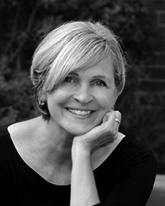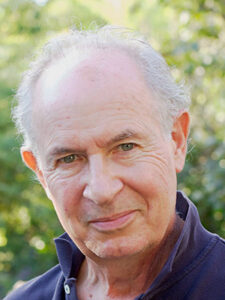Mache/Mary (Emerging Writer’s Contest Winner: FICTION)
In fiction, our winner is Catherine Kim, for her short story “Mache/Mary.”
Of the story, fiction judge Amelia Gray says, “‘Mache/Mary’ is based on a true story, which makes its elegant storytelling all the more crucial—and satisfying. Intimacy and wit characterize the piece, which takes a winding point of view to settle on a woman who lives her life in her husband’s shadow. The result is an absorbing story which, despite its constraints, feels real and inhabited.”
When did you first realize you wanted to be a writer? Or, when did you first call yourself a writer?
Ever since I could read, I wanted to write. However, five decades passed before I had the courage to commit and to express myself creatively. The pandemic brought me to the cliff’s edge, and the empty nest pushed me off.
Describe your writing process. What works for you as a writer? What do you find challenging, or even difficult, about writing?
I write best on the weekends; during the week, I am an academic physician, and it’s difficult for me to think about writing fiction. There’s always some work-related task to be done, and it is much easier to check those tasks off than to try to fill up the blank screen.
What kind of research do you do, and how long do you spend researching before writing?
I write medical historical fiction. I read all of the documentation I can find about a particular interaction, then structure the story. At this point in my life, I’m not interested in “doctor-as-hero” narratives, so I try to uncover as much as possible about the so-called ancillary characters. In most instances, the research has not led to a story.
Who are you reading now? What writers or works have most influenced your writing?
Right now, I’m reading Olga Tokarczuk’s The Books of Jacob. I’m in awe of her balance of the mythic with recognizable human dynamics. Characters from Andrea Barrett’s Ship Fever are more real to me than people I’ve actually met! Her writing shows how historical events are most vivid—and poignant—when told through the filter of an individual’s experience. Alice Munro traverses decades in a single story. Ann Patchett and George Saunders for their compassion and humor. I admire Ted Chiang and Jennifer Egan for their ability to take abstract ideas and show how they shape how we experience, or could experience, the everyday.
What inspired “Mache/Mary”? What works or writers would you say directly informed this prose?
As part of my job, I perform a lot of Pap smears. It’s such an invasion of privacy, it’s natural to wonder, Who dreamed this up? Medicine often involves violating bodily integrity in order to save it. Therefore, it would have been easier—or at least more straightforward—to tell darker stories from the history of medicine. So far, I have deliberately chosen to only write the stories that were not soul-crushers. The soul-crushing stories were all around us, already, when I began writing.
What’s the most valuable piece of writing advice you’ve received?
Not being in a program or a community of creative writers, I haven’t received formal advice. But, from my years as a reader, I knew that anything I wrote had to be at least a little entertaining. Also, as a reader, certain things irk me. Baroque language, highlighting the writer’s verbal skill. Characters drawn in service to idea-driven plots.
What risks do you take with your writing that have paid off?
“Paid off” makes it sound like I have already hit a bottomless jackpot, when in truth I have just had this single story accepted. But I tried not to make Andromache Papanicolaou’s story a joke.
Do you have any advice for new or aspiring writers?
I hesitate to give advice due to my lack of qualifications. Are there any studies of writerly advice? If the endpoint was to be a self-supporting, well-published author, an epidemiologist would survey all authors, determine whether there were common variables in the advice, and weight the variables by the impact of the author’s works.
I can only speak of my own experience, which was that I had to live and reflect for a while before setting anything down. When I was younger, I lacked the insight.
What projects are you working on now? Where is your writing headed?
Aside from this story, I have written several stories of medical encounters. I am interested in how the technological singularity might affect doctoring. It might not be bad. However, it might violate my self-imposed guideline of avoiding grimness.


